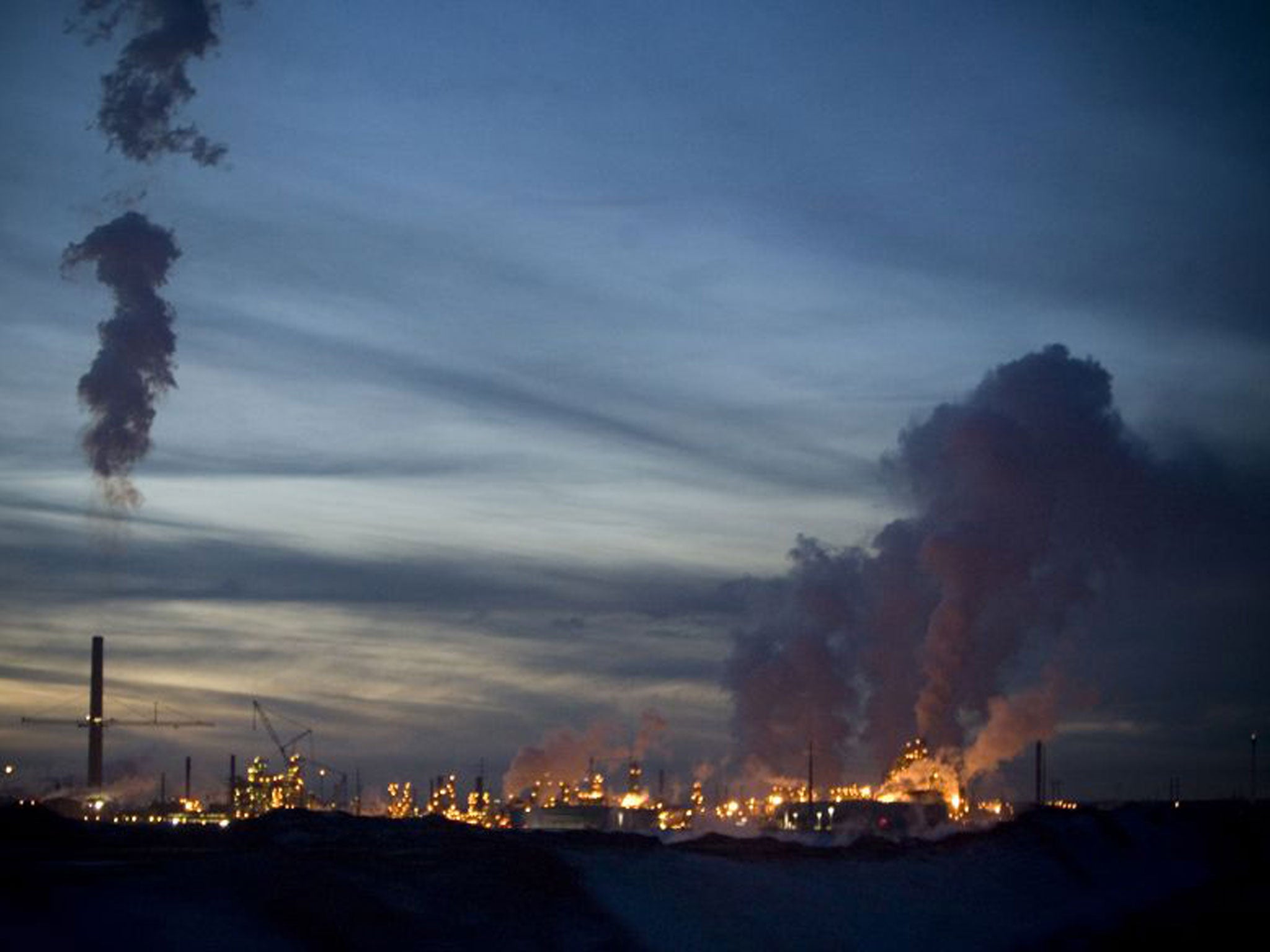730-mile crude oil pipeline threatens land under control of Canada's First Nation population

Of all the Idle No More protests that sprung up on Wednesday's national day of action across Canada, what may have worried the conservative government of Stephen Harper the most was a gathering of aboriginal young men banging tribal drums outside a hotel in downtown Vancouver.
No one was hurt, no traffic was disrupted. A large white tent shaped like a whale sat beside them on the pavement. The mood was almost festive.
Not so inside, where all last week officials from Canada’s National Energy Board were running the latest round of public hearings into plans by a Calgary-based energy company, Enbridge, to lay a brand new 730-mile pipeline from the tar sands of Alberta west across British Columbia to the Pacific Coast. A new terminal in Kitimat, southeast of Prince Rupert, will enable crude to be loaded on to tankers that would then speed it to markets in Asia.
The planned pipeline, named the Northern Gateway, has attracted eager support from Mr Harper who last year pushed through a new omnibus bill effectively stripping away many of the normal environmental restrictions it would have faced. His hand was forced in part because a similar pipeline that was meant to link Alberta to the Gulf of Mexico, the Keystone XL, had been blocked by President Barack Obama.
But the project’s prospects may be dimming. Idle No More first sprung up precisely in response to the omnibus bill called C-45 because it meddles with existing acts and treaties that protect native rights. It happens that the pipeline would cross large swathes of interior BC land under the control of the First Nations, some of which want to block it.
“I never want to dip my paddle in oil,” Bryan Joe, a member of the Comeakin Nation, told the hearing. Wearing a tribal headdress of cedar bark and sea shells, he concluded: “I want the future of First Nations to experience of what is left of our culture and to be able to regain what has been taken from us…you can hear the drums outside that they will agree with me to send a message to the panel… to not recommend this project on our Nations.”
How much heed will be paid by the government to the hearings is any one’s guess. On the day The Independent attended none among those taking the opportunity to speak had a good word to say about the project. Among them was Bill Darnell, 66, a key figure in the foundation of Greenpeace in Vancouver more than four decades ago of Greenpeace. “It is my belief that the people of this province will not allow this pipeline to be built,” he ventured.
If Mr Darnell, a grandfather, harbours some hope that the Northern Gateway, with the risks it would carry of spills either on land or indeed on a coastline newly clogged with queuing supertankers, can be blocked, it is because of the First Nations and Idle No More. “There has been this interesting switch where non-aboriginals are looking to the aboriginals to take leadership because they have real rights,” he told this reporter. “We are racing toward a totalitarian government and Canadians need to speak up.”
Bryan Joe is doing just that. And if his words aren’t heard he will be ready to physically stand in the way when the bulldozers come. “And I won’t be alone,” he says.
Join our commenting forum
Join thought-provoking conversations, follow other Independent readers and see their replies
Comments
Bookmark popover
Removed from bookmarks